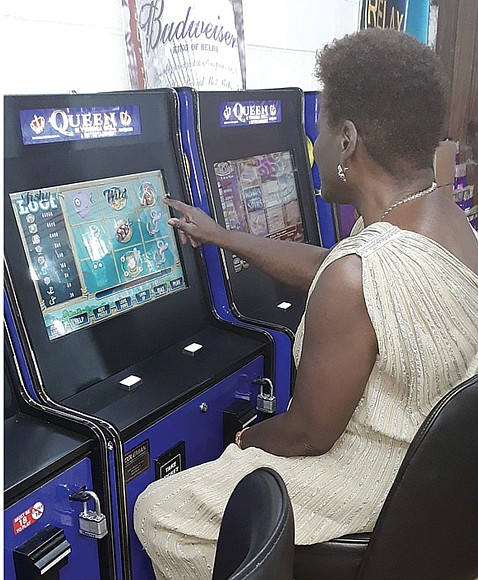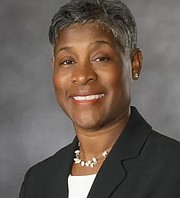Virginia Supreme Court bans ‘skill games’
Jeremy M. Lazarus | 10/26/2023, 6 p.m.
Playing so-called “skill games” at gas stations, retail shops and convenience stores could soon come to a screeching halt in the wake of an Oct. 13 order from the state Supreme Court.
Virginia’s highest court on Oct. 13 threw out a nearly two-year-old injunction that blocked local commonwealth’s attorneys from enforcing a state ban on what essentially are slot machines that require a player to punch a button twice to operate.
Thousands of the games are in operation in retail establishments in Richmond and across the state, but their future is in doubt. As yet, it is not clear when enforcement might begin.
Richmond Commonwealth’s Attorney Colette W. McEachin, for example, has no plans to rush to enforce a ban.
“That’s way down my priority list,” she said, given the number of prosecutions for violent crimes that her office is dealing with.
She said she would deal with the issue of illegal machines if and when law enforcement officers bring information to her office concerning a specific store, but she indicated that she would not be thrilled to add that enforcement burden to her staff’s caseload.
Meanwhile, a lawsuit challenging the ban is to be heard Dec. 18 in Greensville County Circuit Court.
Ahead of that court hearing, a three-judge panel of the Supreme Court ruled that the state has full authority to authorize, regulate or ban some or all forms of gambling and cleared the way for immediate enforcement.
The “skill games” are now listed as illegal gambling in the Virginia code, and those distributing or allowing the machines on retail premises can be charged with criminal offenses.
The General Assembly, considering them competition for newly authorized casinos, voted to ban the “skill games” effective July 1, 2021.
But retired Circuit Court Judge Louis Lerner halted enforcement after accepting the argument of truck stop owner Hermie Sadler that the ban of the games violated the First Amendment’s right of free speech.
The state’s appeal of Judge Lerner’s temporary injunction was filed in mid-September.
The Supreme Court panel found Judge Lerner abused his discretion when he imposed the injunction in finding no merit in the constitutional argument.
In the order they issued lifting the injunction, Justices Stephen R. McCullough, Teresa M. Chafin and Wesley G. Russell Jr. wrote: “Although at times it is difficult to determine where a particular activity falls on the speech/conduct continuum, no such difficulty is present when the activity being regulated is gambling,
“We long have viewed gambling as conduct that may be heavily regulated and even banned by the Commonwealth as an exercise of its police powers.”
The office of Attorney General Jason Miyares, which had asked the Supreme Court for the review, applauded the finding that the ban on “skill games” is constitutionally valid.
The three justices said the state is not seeking to restrict the visuals or messages of the games, but the “promise (and the ultimate execution) of a payout if the game ends in a particular fashion.”
In a footnote, the justices noted, “If criminalizing promises of monetary winnings as determined by the outcome of a game violated free speech rights, the Commonwealth would be unable to prohibit unregulated bookmakers from taking bets on sporting events or citizens from running private ‘numbers’ games because such activities involve the same basic promise.”
“Our attorneys are currently reviewing the opinion and assessing next steps,” according to a statement from Pace-O-Matic, a major distributor of the machines through its Queen of Virginia franchise.









